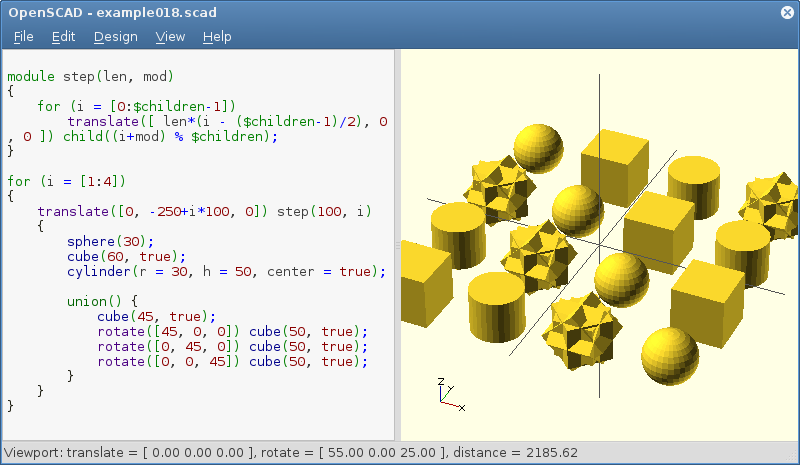This week we welcome Miro HronÄok (@hroncok) as our PyDev of the Week! Miro teaches at Czech Technical University and helps out with the local PyLadies chapter. He is also involved with the Special Interest Group for Python in Fedora as he works for Red Hat in addition to his teaching position. You can check out some of the projects he is involved in over on Github or check out his website. Let’s take a few moments to get to know Miro better!
Can you tell us a little about yourself (hobbies, education, etc):
I’m a guy from Prague, Czech Republic, in my late twenties, yet both of my parents are from KoÅ¡ice, Slovakia, so I’m kinda both Czech and Slovak. I’ve studied Pascal at a gymnasium and later did my bachelors and masters in Computer Science/Software Engineering at the Faculty of Information Technology, Czech Tecnical University in Prague. Most of my hobbies are related to computers and technology but apart from that I have two Irish Wolfhounds and I love to ski.

My technological interest has always been connected to Free and Open Source Software (and Hardware), starting with the Czech Linux community when I was a teenager, co-founding the RepRap 3D Printing Lab during my early years at the university and joining Fedora and later Red Hat, now working in the Python Maintenance team, also pro-active in the Czech Python community.
Why did you start using Python?
Python somehow sprung to the surface everywhere where I was doing something. Was it some basic Linux utilities or several RepRap oriented apps, it happened to be written in Python (or Perl ðŸ˜). I liked the Python syntax a bit more and since I was already familiar with multiple languages such as C, C++, Java, Pascal or even PHP, I decided to give Python a try. Accidentally, I got the Czech translation of Dive Into Python 3 by Mark Pilgrim for free at some Czech Linux conference, so that was my primary source of wisdom.
What other programming languages do you know and which is your favorite?
Apart from the already mentioned languages, I mostly work in (Bourne Again) Shell. I don’t think I have a favorite programming language other than Python, but I love both TeX and OpenSCAD (not “programming” languages per se).
I’m really excited about Rust, yet I still haven’t found the right project to learn it on and I’ve somehow lost the patience to learn by hello world examples since I’ve finished the university.
Haskell is another language I’d like to learn one day.

What projects are you working on now?
My primary responsibility in Red Hat and probably also my main hobby is Fedora. Fedora is a large project, I’ve started as a packager (aiming to bring in the RepRap apps), became a Fedora Ambassador several months later, being mentored by my Czech friend and colleague Jiřà Eischmann and several other Fedora Ambassadors mostly from Germany.
Later I’ve become packager sponsor (being able to “sponsor” more packagers into Fedora Project) and recently joined Fedora Packaging Committee and Fedora Engineering Steering Committee.
As part of my job, I’m the member of the Fedora’s Python special interest group and being the “main Fedora” person of Red Hat’s Python Maintenance team I mostly work on various aspects of Python in Fedora, trying to make Fedora the best system for a Python developer.
Other than Fedora, I contribute to various upstream projects (mostly small patches) including pytest, betamax, Printrun and CPython itself.
I also maintain or co-maintain various projects created by the Czech Python community, most importantly, I’m the main maintainer of Elsa an opinionated wrapper around Frozen-Flask.
Those are mostly programming projects, but I also teach. We have 3D Printing and Advanced Python classes at the university and I also participate in the Czech PyLadies beginners course.
What non-Python open source projects do you enjoy using?
I guess I’ve already mentioned a lot 😠Apart from the obvious things like Git, I really enjoy the Geany text editor (written in C) when working on my Xfce desktop; for terminal use I’ve recently grown fond of micro (written in Go). As for the utility tools, I love ripgrep (a `grep -r` or `git grep` replacement written in Rust).
Why did you go into teaching at a university?
When we started the 3D Printing Lab (IIRC I was in the second year of bachelor), we were searching for ways to get other students familiarized with the RepRap project and our activities. We’ve decided to create a new optional class about 3D printing. We get somebody to officially lead the class, but it as in fact taught by students. Later on, it was easy to get involved with other things and when I learned that they are looking for help in the Technical Documentation class (LaTeX, graphviz, gnuplot and later even groff), I’ve chipped in. I guess I tend to participate in things I like.
When I was finishing my masters, I’ve got an idea to teach advanced Python as well and I’ve talked my team lead Petr Viktorin into it. We’ve managed to open a “Red Hat sponsored” course for masters with Open Source study materials under Creative Commons license.
Teaching mostly lads at the university I’ve also joined the PyLadies beginners courses, to help balance the situation at least a bit by introducing Python to ladies.
And since I’ve always worked from home, being able to teach once or twice a week gives me more opportunities to socialize.
What challenges (if any) do you see in the Czech Republic for people wanting to learn programming?
I honestly don’t. There are plenty of free available resources both in English and Czech, plenty of public events where you can learn more, countless initiatives for kids to learn, even courses for ex-miners in the Ostrava region. All you need is a will to invest your time into programming.
I don’t really know what is the state of informatics classes at elementary and secondary schools, might vary from institution to institution and can sometimes be seriously horrible as well as excellent.
My advice: If your school cannot teach you programming, look beyond.
Come to the Czech PyCon to meet all the enthusiastic people from my homeland and see how we do things here 🇨🇿ðŸ
I mean, seriously, come, the next one is in Ostrava in June 2019 (and if you read this later, check the website for next years).

What’s the best thing about working at Red Hat?
Working with excellent people on stuff that I’d probably work on for free as well and getting paid for it 🤯
I work for Red Hat for 6 years now and most of the time I just did what I thought was right. Don’t get me wrong I talk to other people as well, but there is no client that demands a feature right now (or at least the client is layered away from me), or a big bad boss that tells me I can only contribute to Free Software projects on Fridays. Everything I do for Red Hat is Free Software – in the communities.
Thanks for doing the interview, Miro!

Pingback: “This week we welcome Miro HronÄok ( @hroncok ) as our #PyDev of th… | Dr. Roy Schestowitz (罗伊)
Pingback: Links 25/3/2019: Linux 5.1 RC2, Nano 4.0, PyPy 7.1 | Techrights
Pingback: ICYMI: #1 Trend – The Push for Python makes’ it, Pyboard D-series, Squeezing Python Into Microcontrollers! #Python #Adafruit #CircuitPython #ICYMI @circuitpython @micropython @ThePSF @Adafruit « Adafruit Industries – Makers, hackers, artis